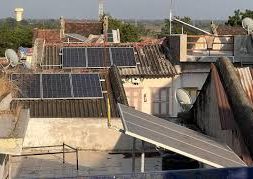
View: India needs accelerated support for electric vehicles to achieve net zero – EQ Mag
The recent Auto Expo 2023, India’s largest motor show, generated significant excitement with the launch of several low- and zero-emission vehicle models, including electric vehicles (EVs), hydrogen, and hybrids. While the event confirmed the auto industry’s growing focus on decarbonization, it also showed that India urgently needs to accelerate budgetary support for zero-emission technologies—particularly EVs, as the most mature and commercially viable segment in the transport sector.
The fact is that decarbonizing the transport sector will be essential for India’s clean energy transition and its journey to achieve net-zero emissions by 2070. EVs are the key technology in this process. Although more and more people across India are adopting EVs, they still comprise a marginal component of all new sales. EVs share in total vehicle sales grew from 1.7% in 2021 to 4.7% in 2022, driven by faster adoption in the two-wheeler and three-wheeler segments. Boosting government spending and adopting favorable policies is therefore crucial to truly unlock the country’s electric mobility potential.
A recent study by the International Institute for Sustainable Development (IISD) and its partners showed that the uptake of subsidies for EVs remains the lowest across energy technologies. Although EV subsidies rose around three times between 2021 and 2022—driven by a concessional Goods & Services Tax (GST) rate on EVs and the FAME-II scheme that supports the electrification of public and shared transportation—they accounted for only 1% of India’s total energy subsidies. Policymakers need to significantly increase spending to support the creation of charging infrastructure across the country, extend the FAME-II scheme’s duration beyond 2024, secure critical mineral supply chains in the medium-term, and support R&D investment into alternate battery technologies, such as solid-state batteries…Read More…















